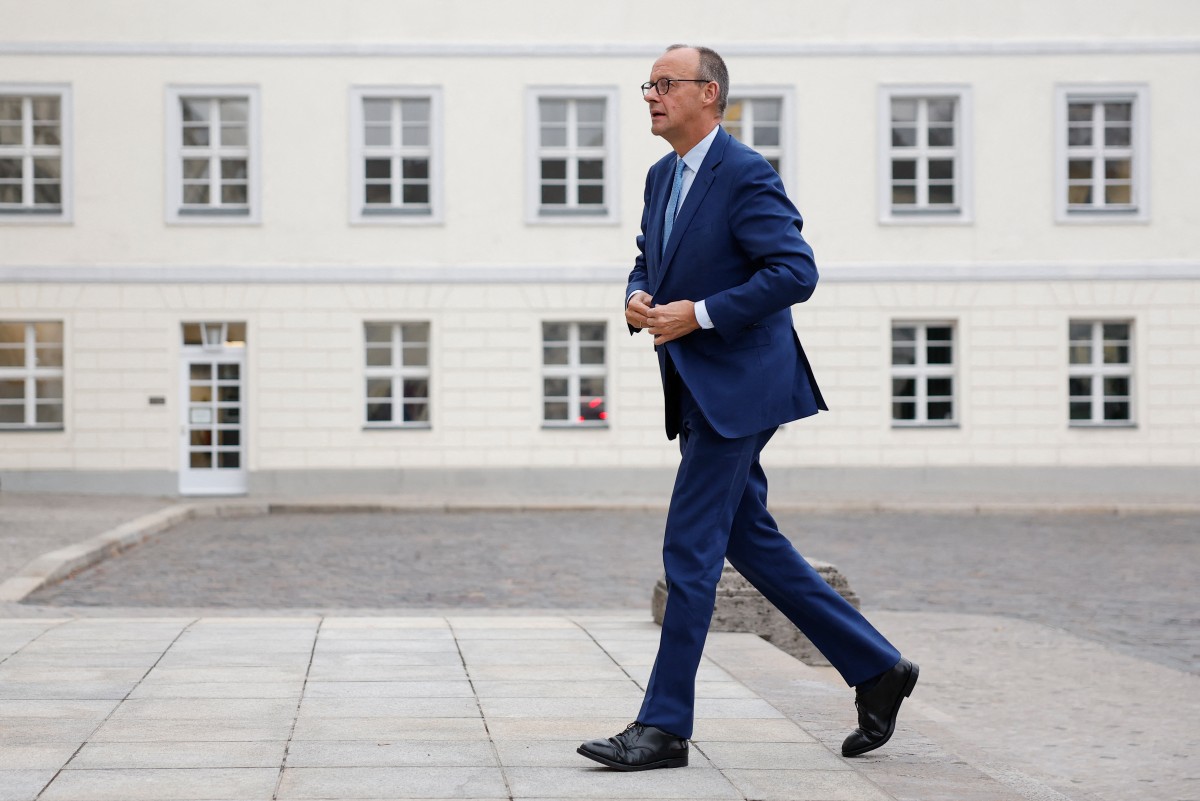Inside Germany is our weekly look at some of the news, talking points and gossip in Germany that you might've missed. It’s published each Saturday and members can receive it directly to their inbox by going to their newsletter preferences or adding their email to the sign-up box in this article.
High profile break-up and a vote across the Atlantic
It's been a helluva week. First we had the US elections which saw former president Donald Trump soar to victory.
Many of our American readers, based in Germany and beyond, shared how they were feeling on Wednesday following the vote. A few of you also emailed me, left comments on our stories and on our social media pages, such as Facebook. Thank you for getting in touch - I was very interested to read everyone's opinions.
And then we had Germany's big news. The coalition government - nicknamed the 'traffic light' after the party colours of the red Social Democrats (SPD), Greens and yellow Free Democrats (FDP) - collapsed late on Wednesday night.
Although Germany doesn't have any convicted felons in leadership positions, there is still a ton of drama. Chancellor Olaf Scholz (SPD) announced he had sacked Finance Minister Christian Lindner (FDP), which led to the liberals swiftly exiting the coalition (except for Transport Minister Volker Wissing who quit the FDP and stayed on).
The coalition breakup was not unexpected but the mood was pointing to political leaders pulling it together - especially in the event of a Trump win. But toxic relationships can only drag on for so long. Lindner has been rubbing everyone up the wrong way and Scholz took drastic action.
This photo posted on X by our journalism colleagues over at DW sums it up:
Confused about what's going on in German politics right now? 😕
— DW Politics (@dw_politics) November 7, 2024
Relationship status: It's complicated — and, to top it all off, some of the key players involved had to pose for this awkward photo... pic.twitter.com/4kF49JJIuU
So what happens next? Breakups are never easy. At the time of writing on Friday, pressure was building on Scholz to call a vote of confidence next week. This would lead to the formal collapse of the government and new elections as early as January - several months before the next scheduled 'Bundestagswahl' in September 2025. Scholz seems to be holding out to keep a minority government on the go, with an election planned for March.
Regardless of when it happens, campaign mode will soon be switched on which probably means politicians (and their staff) won't be getting much of a Christmas break this year. And after the election? Well, then we can expect more coalition building, but hopefully they can avoid a messy breakup.
READ MORE:
- When are fresh elections likely to be held in Germany?
- What we know so far about the German government collapse
Are new rights in danger?
With an early election on the horizon, many foreign residents are rightly concerned about the impact of a conservative government on certain rights, such as being able to get dual citizenship.
As polls stand at the moment, the conservative CDU/CSU is the strongest force in Germany and that means the Union could well win the next vote. The far-right Alternative for Germany (AfD) is polling in second position - but parties have ruled out working with them.
The CDU/CSU has spoken out frequently against the move to allow people naturalising as German to hold multiple citizenships. The Union was also unhappy about the government reducing the required residency period needed to become German.

But it's unlikely that a CDU/CSU-led government would be able to reverse this law. Looking at the latest polls, the CDU would still need one or more parties to form a coalition with. And the 'traffic light' parties who just passed the reforms aren't likely to renegotiate on it.
The Union would also need an absolute majority in the Bundesrat, which represents the states, and that is not likely either.
With all this in mind, the significant law changes that benefit foreign residents - and Germans who move abroad - appear to be safe for now.
READ ALSO:
- Will Germany's dual citizenship law remain after new elections?
- What would a CDU win mean for Germany?
35 years without the Berlin Wall
Even after almost eight years, I still feel very lucky to live in Berlin - a city so sprawling (at least compared to my birthplace of Aberdeen, Scotland) and steeped in history, culture and with wonderful people.
The German capital has gone through so many changes - even in the last two or three years. But it's still hard to believe that it was so vastly different just a few decades ago - and split into two cities.
On Saturday November 9th, Germany will mark 35 years since the fall of the Wall. It stood dividing East and West Berlin for 28 years.
Just a short walk from my flat, there are markings on the ground which show where the Wall once stood. It's also visible in parts of the city like the East Side Gallery.
The anniversary is a good time to reflect on the division and how things have developed since then. Although some people have mixed feelings about the reunification of Germany, the Berlin Wall fall was a joyful historic moment, signalling freedom.
There are several events being held in Berlin around the anniversary date, including exhibitions, history tours and live music.
READ ALSO: Where roads will be closed in Berlin for 35th anniversary of the Wall fall

Comments